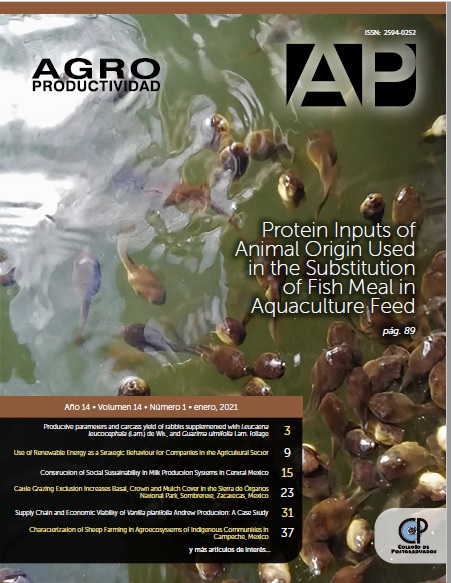Protein Inputs of Animal Origin Used in the Substitution of Fish Meal in Aquaculture Feed
##plugins.themes.bootstrap3.article.main##
Keywords
Acuicultura, proteínas, dietas, sub productos
Resumen
Objective: To highlight some studies carried out with alternative protein sources from
byproducts of animal origin to replace fish meal (FM) in the nutrition of aquaculture
species.
Design/Methodology/Approach: A search for new protein sources of animal origin was
carried out and experimentally evaluated with species of aquaculture interest, employing
an information search methodology through the analysis of metadata kept in databases
throughout the World Wide Web.
Results: Advantages and disadvantages of including byproduct flours of animal origin in
the diet of aquatic organisms are pointed out. However, for worldwide aquaculture it is
essential to emphasize that this protein exchange should not affect aquatic ecosystems
but rather mitigate the effects of environmental impacts and promote the sustainability of
aquaculture.
Study Limitations/Implications: The results of incorporating flours of animal origin in
substitution of FM in the diets of aquaculture species are experimentally indicated, while
specifying that there are no reports indicating the transcendence of such substitution in
commercially balanced meals.
Findings/conclusions: Each of the dietary alternatives described here works at certain
nutritional levels, decreases costs and increases the digestibility index, allowing for 2
better water quality by disposing less nitrogen into the aquatic environment, without
sacrificing the quality of the diets or the energy content of the final products.

